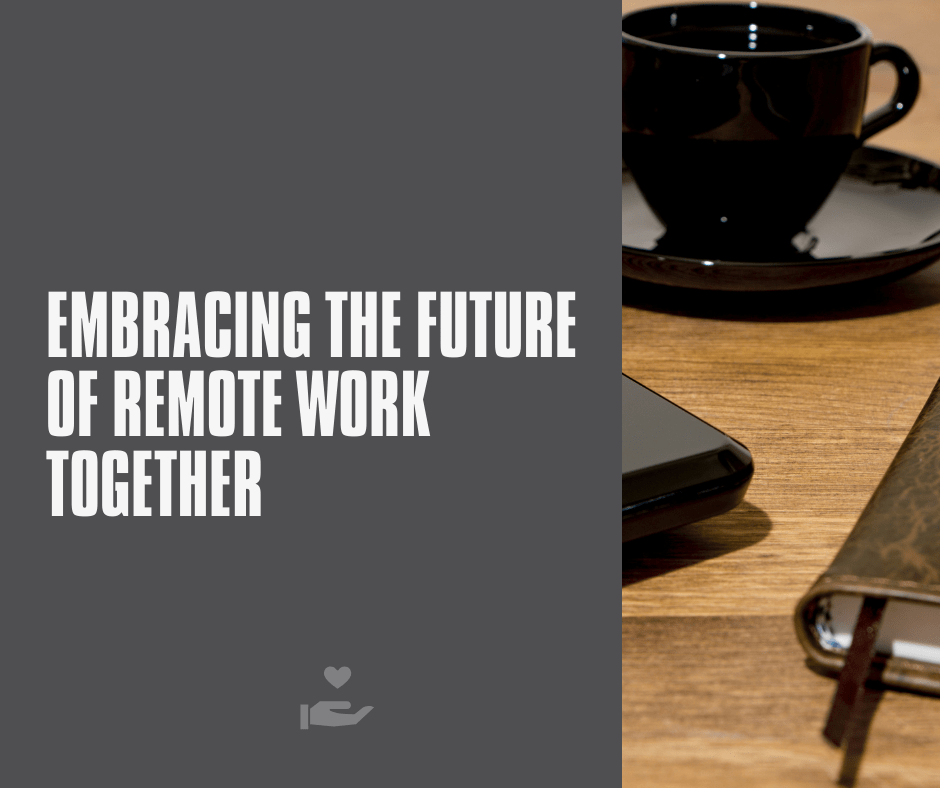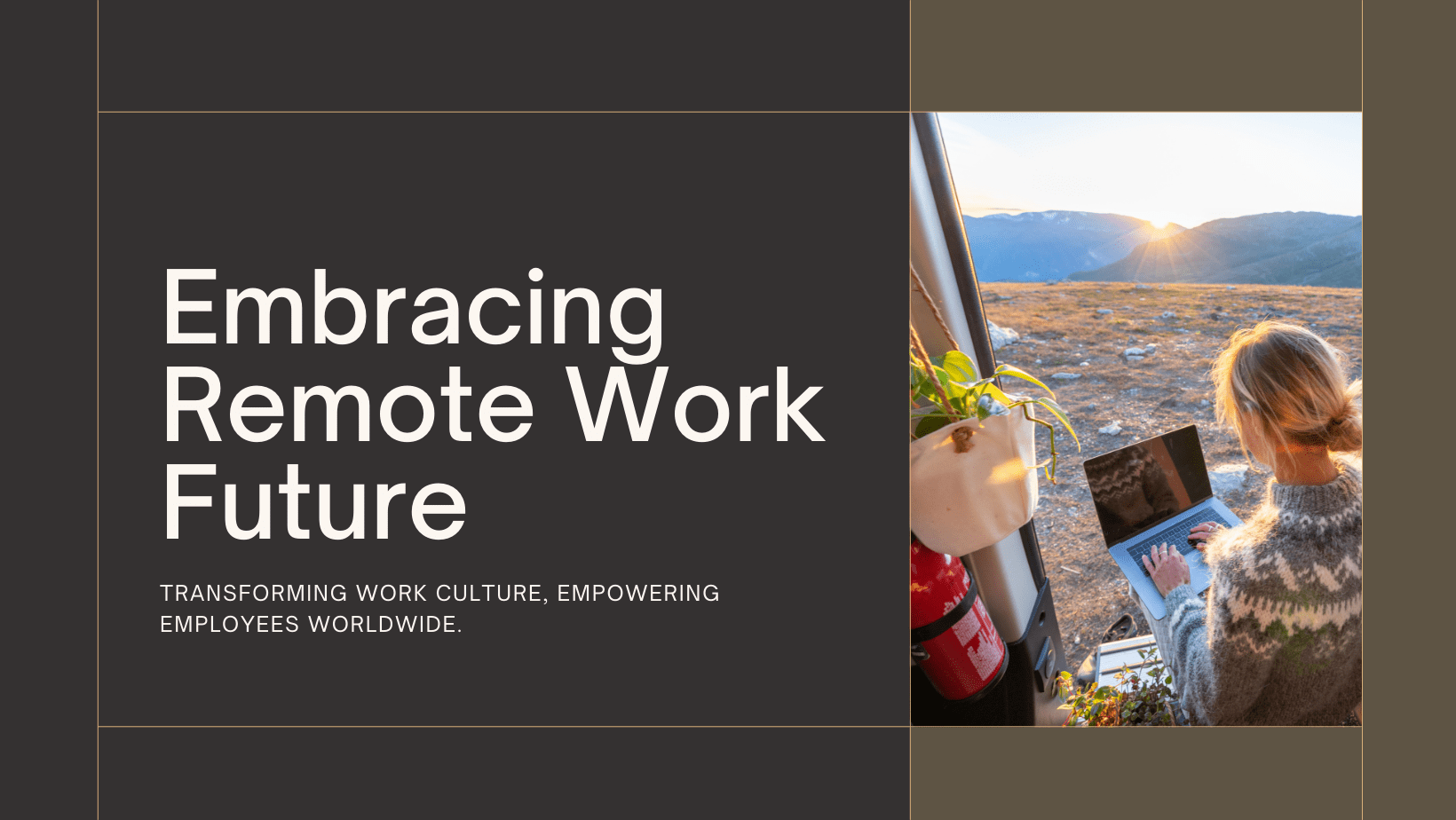The Future of Remote Work is very vast. Some key points of Remote Work are as follows:
The Growth of Remote Work
Remote work has developed a game changer in the modern workplace. It has altered how we reflect about our works. The COVID 19 disease flew up this move. Now, many businesses are reconsidering their work representations. As a result, the upcoming of work appears very different from the past .
Paybacks of Remote Work
Remote work offers many advantages:
- Better work life balance
- Less time spent commuting
- Increased productivity
- Access to a wider talent pool
- Lower costs for businesses
- Happier employees
Challenges to Overcome
However, remote work is not deprived of its contests:
- Feelings of isolation
- Difficulty separating work and personal life
- Communication hurdles
- Managing remote teams
- Cybersecurity issues
- Maintaining company culture
Technology Driving Remote Work
Technology has made remote work possible:
- Video chat tools
- Project management software
- Cloud storage
- Virtual private networks
- Time tracking apps

The Moving Landscape
Numerous leanings are forming the future of remote work:
Hybrid Work Models
Many companies are adopting hybrid models. These combine remote and office work. Staffs can select someplace to work. This method attempts to support the best of both worlds.
Digital Nomads
More people are working while traveling. Some countries offer special visas for these workers. This tendency is altering how we reflect about work and travel.
Virtual Reality at Work
VR technology is improving quickly. It could change how we collaborate remotely. VR might create virtual offices and enhance remote meetings.
AI and Automation
AI tools will play a big role in remote work. They can support accomplish everyday jobs and advance communication. This could make remote work more efficient.
Impact on Cities and Homes
Remote work is altering where we living and effort:
- Less demand for big city offices
- Extra concentration in outer and rural areas
- Rise of co working spaces
- Need for better home offices
Environmental Effects
The shift to remote work affects the environment:
- Fewer carbon emissions from commuting
- Less energy used in office buildings
- Possible increase in home energy use
- Changes in how cities grow
Detailed Table: Future of Remote Work Trends
| Trend | Description | Benefits | Challenges |
| Hybrid Work | Mix of remote and office work | Flexibility, balance | Managing split teams |
| Digital Nomads | Working while traveling | Global experiences | Legal and tax issues |
| VR Collaboration | Using virtual reality for work | Better remote teamwork | High costs, tech adoption |
| AI Powered Work | Using AI tools for remote tasks | Increased efficiency | Privacy concerns |
| Remote First Companies | Businesses built for remote work | Global talent access | Building company culture |
| Gig Economy Growth | More freelance and contract work | Worker flexibility | Job security issues |
| Eco Friendly Remote Work | Focus on sustainable practices | Reduced carbon footprint | Sustainable home setups |
| Remote Learning | Online education and training | Accessible learning | Engaging students remotely |
Conclusion
The future of remote work is thrilling and filled with potential. It suggests elasticity and new chances. However, there are challenges to address. As technology advances, remote work will developed smoother. The future of remote work is bright. Businesses must adapt to visit competitive. Workers should keep learning new skills. The workplace of tomorrow will be extra elastic and tech driven than ever earlier. Remote work is here to stay, forming a new period of work life balance and worldwide partnership.
Frequently Asked Questions
How will remote work affect my job security?
Remote work can impact job security in different ways. It opens up more job opportunities worldwide. You can work for companies anywhere. This means more options but also more competition. Some jobs might be at risk due to easier outsourcing. However, remote work similarly makes new kinds of works. To stay secure, focus on learning new skills. Adapt to new technologies. Be open to change. These steps will help you thrive in the remote work era.
What skills do I need for remote work?
Several skills are important for remote work success:
- Self motivation
- Good communication (writing and speaking)
- Time management
- Tech skills
- Problem solving
- Teamwork in virtual settings
- Emotional intelligence
Work on developing these skills. They will help you do well in remote work. Preserve learning and adjusting to new gears and approaches.
How can companies keep their culture with remote teams?
Keeping company culture in remote work takes effort:
- Hold virtual team building events
- Clearly share company values
- Recognize good work
- Have virtual social times
- Give regular feedback
- Create online spaces for casual chats
- Design onboarding that focuses on culture
- Plan in person meetups when possible
Companies should work hard on building a strong remote culture. This helps keep employees engaged and happy.
What are the continuing effects of remote work on mental health?
Remote work can effect mental health in decent and evil ways:
Good effects:
- Less stress from commuting
- Better work life balance
- More control over your work
Bad effects:
- Feeling lonely or isolated
- Tough to discrete work and own life
- More time looking at screens
To avoid problems:
- Set clear work hours
- Stay connected with others
- Take care of yourself
- Take breaks from screens
Employers can help by offering support and flexible schedules. The long term effects depend on how well we handle these challenges.

[…] Remote workers can feel secluded without the social contact of an office. Regular check-ins and near social actions can help. […]
What we can do
[…] work is also helpful for the environment. With less people exchanging, there is a important discount in carbon discharges. This backs to a […]
Very good for knolage gain
This article give very useful information about freelancing. Very informative content